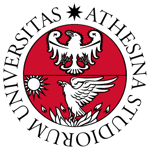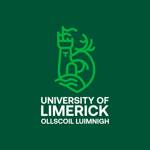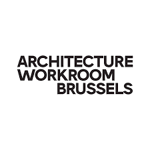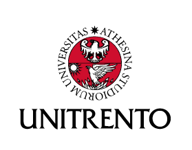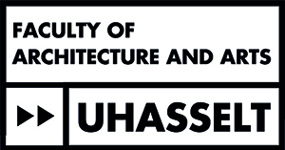REWORLDING Kick Off
This one-day event introduces the REWORLDiNG concept, practice and network. REWORLDING is a careful and situated Participatory Design approach that aims for understanding and creating synergies between the different worlds in which people live and work, and the more-than-human worlds they are entangled with.
We'd love to welcome you on October 11th in Hasselt, Belgium.


Dit event is reeds afgelopen
The REWORLDING Kick Off
This one-day event (October 11th 2024) introduces the REWORLDING concept, practice and network. REWORLDING is a careful and situated Participatory Design approach that aims for understanding and creating synergies between the different worlds in which people live and work, and the more-than-human worlds they are entangled with.
The event is oriented at researchers and practitioners interested in more-than-human participatory design through a series of lectures, debates and performative presentations. These deal with the question how ecological issues are experienced differently by different actors, communities and organisations, leading to societal polarisation and inhibiting urgently needed actions around these issues. During the day, we explore design approaches that can bring diverse actors together to tackle these challenges in participatory ways, with particular attention to those who remain silent, both human and non-human actors (e.g. plants, rivers and insects). This event is part of of the EU-funded REWORLDING project (MSCA-Doctoral network).
Programme
- 10h30: Welcome
- 11h00: Introduction to REWORLDING and lecture by Dr Michelle Bastian
- 12h00: Panel debate part 1 with Reworlding Network partners.
- 13h00: Walking lunch
- 14h00: Lecture by Studio Plastique in co-organisation with Vaklab Bokrijk
- 15h00: Panel debate part 2 with Reworlding Network partners.
- 16h00: Food-networking: every early stage researcher part of the REWORLDING network will (re)present their research through a food or drink item.

Michelle Bastian // lecture // 11h00
Michelle Bastian is a Senior Lecturer in Environmental Humanities at the University of Edinburgh and an Associate Professor II in the Oslo School of Environmental Humanities. Her work looks at the role of time in human and non-human environments. Currently, she is exploring seasonal timing in plants and animals and how this is changing in a time of climate breakdown.
Re-weaving shared temporalities with local ecologies
This talk draws on recent work in phenology, the scientific study of seasonal timing in ecosystems, which I have been undertaking as a form of field philosophy. Drawing on the reworlding approach to participatory design (Huybrechts et al 2022), I will discuss examples of the current infrastructures available for people to connect with their local environments through paying attention to seasonal shifts. Much of these structures come from citizen science projects, where individuals are invited to track particular trees, insects or shrubs as they respond to recurring cycles. Climate change has caused many species to shift their timing, with some beneficial outcomes, but also with concerns about temporal mismatches between species and their food sources, pollinators or damaging weather such as frosts, or storms. At the heart of this presentation will be questions about how more-than-human participatory research might be thought through a framework of ecological temporalities, and how paying attention to changing cycles can foster very different relationships to local ecologies than many other citizen science projects based on short-term periods of species identification. What happens when we translate rich experiential knowledge into the simple dates needed for our citizen science forms? How might our engagements with phenology be redesigned in order to foster more participatory approaches that work with the ways that more-than-human communities are transformed by these practices? Finally, what could environmentally focused citizen science learn from the ways that time and temporality have been theorised with wider discussions of participatory research?

Studio Plastique // lecture // 14h00
Studio Plastique is a research and design studio led by Theresa Bastek and Archibald Godts. They have received national and international recognition for their innovative approach which combines imaginative scenarios and critical reflections with in-depth investigations of complex material supply chains, production systems, technological infrastructures and socio-ecological contexts, thus pushing the boundaries of what design aims to achieve.
As tutors in design at the Design Academy Eindhoven and KASK Ghent they furthermore share their experience with the next generation.
About the lecture
In this lecture, Theresa Bastek and Archibald Godts will attempt to highlight the essential connection between theoretical contextual understanding and practical contextual implementation that forms the basis of their company. In particular, and based on practical illustrations, they will highlight the discrepancy between the realities of innovative enterprises and the role of institutions and corporations that attempt to assimilate those ideas, whilst highlighting strategies to overcome this chasm. What makes design a key to understand and overcome the challenges of our time? And how could we engage with design in a more structural way? What makes the value of design so elusive? How does this connect to the history of design? And how does this compare to other fields?

Practical information
The Reworlding Kick off takes place in Hasselt, Belgium.
- The event location: UHasselt, Campus Old Prison, Martelarenlaan 42, 3500 Hasselt (city center)
- How to get to the city by train, car or bike? Check this website.
- Airports in the region: Brussels Airport, Brussels South Charleroi Airport, Eindhoven Airport, Maastricht Aachen Airport.
- In need of an overnight accomodation? Check this website.
- Searching for a place to eat in the city? Let this site be you guide.
- Need help or additional info? Contact Liese.mertens@uhasselt.be
REWORLDING network
This kick-off event is part of the Marie Curie project REWORLDING that deals with how ecological issues are experienced differently by different actors, communities and organisations, leading to societal polarisation and inhibiting urgently needed actions around these issues. It is coordinated by UHasselt and has seven partners (Aalborg University, UniTrento, University of Limerick, Malmö University, ETH Zürich, Architecture Workroom Brussels, UHasselt). However, we welcome everyone to become part of our network by taking part in our lectures and seminars in the coming years.
This project has received funding from European Union's EU Framework Programme for Research and Innovation Europe Horizon Europe (HORIZON) Marie Skłodowska-Curie Actions Doctoral Networks (MSCA-DN) under the grant agreement 101119451.

